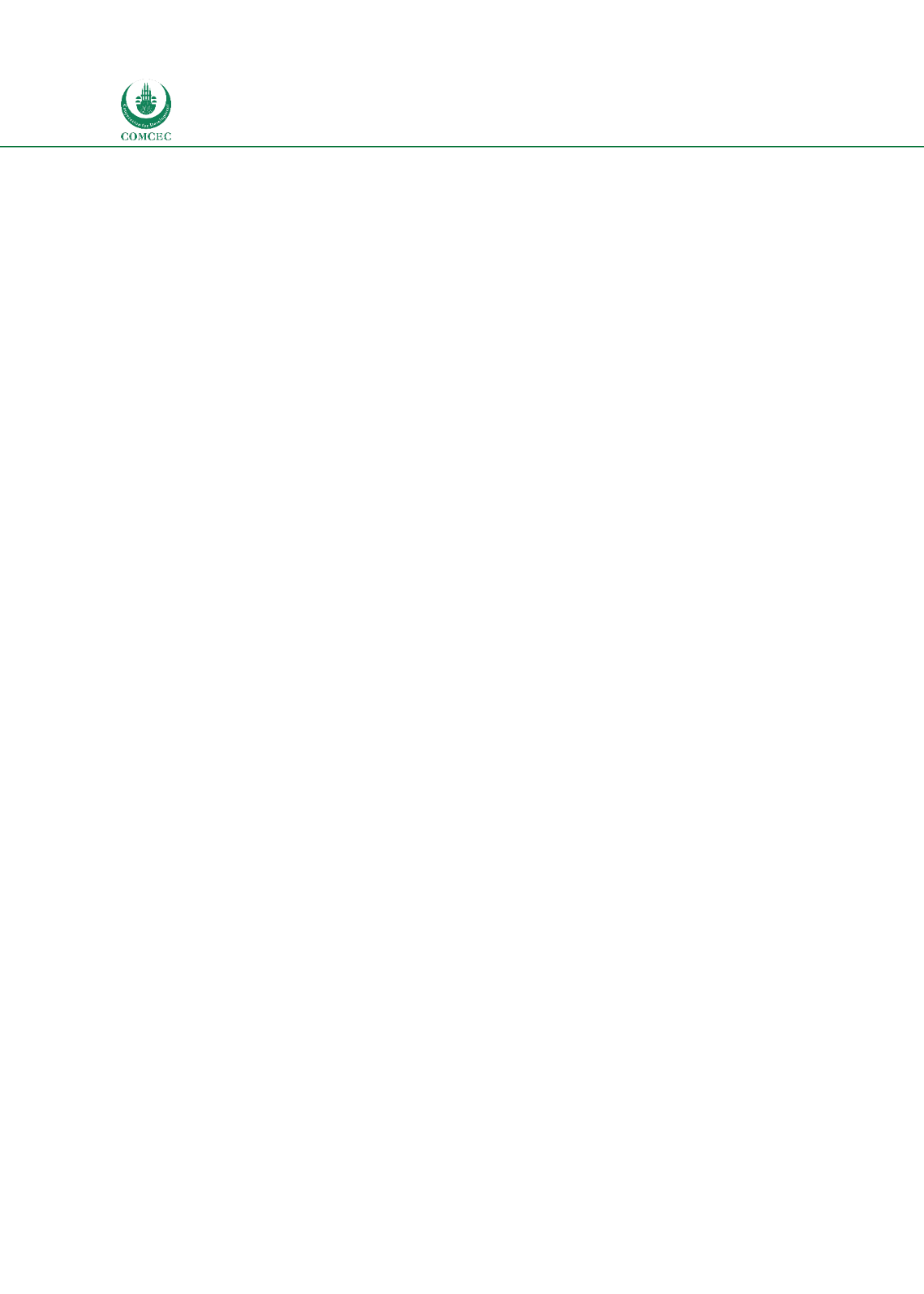

National and Global Islamic Financial Architecture:
Problems and Possible Solutions for the OIC Member Countries
124
4.8.2. Financial System Regulation and Supervision Framework
In Saudi Arabia, there are two authorities responsible for the regulation and supervision of
Islamic banking and financial activities, cooperative insurance (
takaful
), and sukuk. These
authorities are the Saudi Arabian Monetary Agency (SAMA), and the Capital Market Authority
(CMA). Under the authority given by BCL 1966, SAMA regulates and supervises Islamic
financial institutions (IFIs) that conduct banking and financial activities along with
conventional commercial banking businesses.
SAMA the central bank of the Kingdom of Saudi Arabia has been entrusted with performing
many functions pursuant to several laws and regulations. The most important functions,
relating to our subject matter, are promoting the growth of the financial system and ensuring
its soundness; supervising commercial banks; supervising cooperative insurance companies;
and supervising finance companies.
Islamic banks are not considered different from conventional within the framework of SAMA
and are regulated in the same way (BCBS 2015: 34). This applies to the operational efficiency,
risks and resilience of banks. Nevertheless, the assessment could be changed if there were
great variaties of Shariah complaint activities and the financial reporting standards applied to
Shariah complaint activities (BCBS 2015). BCBS (2015) suggests doing a practical assessment
as to whether the applications of Basel Committee standards cover the risk stream from
Shariah complaint banks and activities (BCBS 2015).
Further, according to the Finance Companies Control Law (FCCL), SAMA has the supervision
on finance companies licensed in accordance with the provisions. It has no special reference to
Islamic finance with the Law apart from in Art 1 by confining that engaging in financing
activities should be in line with the Shariah law. Also, the Law on Supervision of Cooperative
Insurance Companies (LSCIC) stipulated in Art 1 insurance are to be undertaken in accordance
with Shariah.
Furthermore, the non-bank private financing sector has undergone major restructuring. The
Finance Companies Control Law (FCCL) and its Implementing Regulations aim to form a new
competitive sector to extend credit while facilitating its soundness and stability. The Law and
its Implementing Regulations envisage provisions that regulate the licensing of companies and
set requirements/standards with respect to capital adequacy, finance policies and measures,
exposure limits, internal organization, corporate governance, risk management, internal audit,
compliance and refinancing. These requirements are intended to contribute to enhancing the
stability of the sector, maintaining its soundness, and promoting the level of credit activity with
better risk management (SAMA 2015). These are, supposedly in line with Shariah Law. All
these developments in the financial system show emerging acceptance to Shariah principles,
although there is no distinction between conventional and Islamic finance.
The Capital Markets Authority (CMA) was established under Article 4 of the Capital Market
Law (CML) 2003 to regulate and develop the Saudi capital markets by issuing the required
regulations and rules for implementing the provisions of CML. In addition, the CMA regulates
the issuance of securities and monitors securities and dealing in Securities including the
issuance of sukuk. It also regulates and monitors the work and activities of parties subject to
the control and supervision of the Authority.
















